This is a long essay prompted by my thoughts about the Jewish New Year, the Jewish Day of Atonement, and the prayer that Jews say for healing. Grab a cup of your favorite hot beverage, and settle in. As always, feel free to share. And L’Shana Tova (Happy New Year).
At 2011 Yom Kippur services (Jewish services for the Day of Atonement), with the help of my partner Susie Lampert, I delivered the following teaching using a text-to-speech program that allows me to express my thoughts in spoken words even though my ability to speak is quite compromised. The program is called Neo-Kate. It’s free app for the iPad.
 Last year at this time, I was on the verge on turning 59. Yesterday, I turned 60. God willing, next year I will turn 61. But the medical unknown I faced last year, that I told you about then on the afternoon of Rosh Hashanah, has turned into a dreaded disease: ALS. There is no cure. There aren’t even any good treatments. So, barring the end of the world as I know it, or a medical miracle, I know how I will die and that my life will be shorter and my living far more compromised than I would have ever thought or wished it to be.
Last year at this time, I was on the verge on turning 59. Yesterday, I turned 60. God willing, next year I will turn 61. But the medical unknown I faced last year, that I told you about then on the afternoon of Rosh Hashanah, has turned into a dreaded disease: ALS. There is no cure. There aren’t even any good treatments. So, barring the end of the world as I know it, or a medical miracle, I know how I will die and that my life will be shorter and my living far more compromised than I would have ever thought or wished it to be.
As my ALS progresses, I want to be able to make conscious choices about what I am willing to tolerate in terms of interventions and daily life. To do that, I need to keep focusing on  what I value in life — love, music, words, time with people I care about, activities of the mind, pursuit of spiritual connection — and how much of what I value can be achieved or obtained when there is so much my body will not be able to do.
what I value in life — love, music, words, time with people I care about, activities of the mind, pursuit of spiritual connection — and how much of what I value can be achieved or obtained when there is so much my body will not be able to do.
And I want keep my eyes wide open to what the future holds, realizing that I am essentially an optimist in how I approach life. I think we respond to devastating health news from our essential beings. A fatal illness does not change who we are. For me this means that, even as my physical capabilities wane, I will look for and try to embrace the positive aspects in what remains available to me.
Illness confronts us with some of the greatest uncertainties we ever face. In my case — and really for all of us — the uncertainty is not about what the future holds, but how it will unfold. How do we embrace illness, if that is our reality, without welcoming it? How do we continue to do what matters to us as long as we can? How do we find comfort in the support of friends and the love of God? What role does God play in a devastating illness and in healing?
These issues are particularly poignant during the Days of Awe, and especially at Yom Kippur. As my Rabbi, Margaret Holub, reminded me, one important part of the Yom
Kippur ritual is rehearsing our own deaths as we fast, repent, dress in the white of a shroud and engage in the recitation of the culminating Shema (the central prayer of the Jewish faith) in the divine presence that closes the Day of Atonement.
But the prayer we say for healing — the Mi’ She’Berach — is 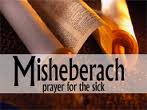 said whenever the Torah (the first five books of the Old Testament) is read, and at many other times as well. Healing is by no means limited to Yom Kippur. And there are quite a few translations of the prayer, which originated, interestingly enough, as a prayer for rain in a time of draught.
said whenever the Torah (the first five books of the Old Testament) is read, and at many other times as well. Healing is by no means limited to Yom Kippur. And there are quite a few translations of the prayer, which originated, interestingly enough, as a prayer for rain in a time of draught.
I’m partial to Debbie Friedman’s translation, which can be stated briefly as:
May the source of strength who blessed the ones before us
Help us find the courage
To make our lives a blessing
And let us say, Amen
Bless those in need of healing with r’fuah sh’leimah
The renewal of body, the renewal of spirit
And let us say, Amen
The new facts of my life also brought back to me the soliloquy from Hamlet that was
central to the teaching on uncertainty that I did here last year on Rosh Hashanah. Most people know the part of this speech that starts “to be, or not to be,” but there are other words that speak to me:
But that the dread of something after death,
The undiscovered country, from whose bourn
No traveler returns, puzzles the will,
And makes us rather bear those ills we have
Than fly to others that we know not of?
Thus conscience does make cowards of us all,
And thus the native hue of resolution
Is sicklied o’er with the pale cast of thought,
And enterprises of great pitch and moment
With this regard their currents turn awry,
And lose the name of action.
The Friedman translation of the Mi She’Berach prayer is really not so far removed from Hamlet. I think asking for the courage to make our lives a blessing has a lot in common with avoiding the fear that puzzles the will and makes us lose the name of action.
That Hamlet quote also has things in common, I think, with comments Rabbi Margaret made at the start of Rosh Hashanah (the Jewish New Year) this year about what it would be like to live conscious of all the terror and awe that are part of the world that God created. Nothing like an always-fatal disease to remind me that this is actually where I now live all the time. How do we face this reality and keep moving forward?
One aspect of my answer to this question is nicely expressed in one of the meditations at the beginning of our High Holy Day prayer book:
“Awe is an intuition for the creaturely dignity of all things and their preciousness to God; a realization that things not only are what they are but also stand, however remotely, for something absolute. Awe is a sense for the transcendent, for the reference everywhere to God, who is beyond all things. Awe enables us to perceive in the world intimations of the divine, to sense in small things the beginning of infinite significance, to sense the ultimate in the common and the simple; to feel in the rush of the passing the stillness of the eternal.”
One way for me to keep the terror in perspective is to focus on the places where God’s awe is manifest. As I’m less able to get around, I notice a lot of things through the front window of our house: hummingbirds, the clouds in the sky, the quality of the light. In the right 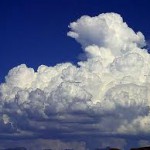 frame of mind, I draw from these things the sense of the transcendent, of the reference everywhere to God. They enable me to sense in small things the beginning of infinite significance.
frame of mind, I draw from these things the sense of the transcendent, of the reference everywhere to God. They enable me to sense in small things the beginning of infinite significance.
Within this framework of awe and terror, I keep moving forward — which is another way of not losing the name of action, of trying to make my life a blessing — I am determined to do what I can, while I can, and to adapt to do things differently as I lose function. I’m an activist by nature or nurture or experience. As I lose mobility, I have acquired a cane and walker to help me
get around on foot. I use eating utensils with fat handles, which are easier for me to grip than regular utensils. Since I can’t talk very well, I write a blog that keeps me engaged in the world and interacting with people who care about the things I care and write about, and I speak with the help of technology. I spend time with my beloved partner Susie. I travel as I can to places I need or want to be.
And, over the course of the past year, as I have worked to face my reality with my eyes open and without losing the name of action, I have found myself looking in many places for how to do that. One such place is my Jewish heritage. With Rabbi Margaret’s help, I have taken up weekly Torah study with a dear friend (in
English; I can’t read Hebrew). I fulfilled a goal that had long been in my mind of taking a Hebrew name, and I decided to do that before I learned that some Jews change their Hebrew names when they are seriously ill to try to fool the angel of death. As part of the process of taking a Hebrew name, I
immersed in a Mikvah (a Jewish ritual bath) for the first time. I now meet regularly with a rabbi from the Jewish Healing Center in San Francisco.
As I read Torah, I find things that help me maintain perspective on healing and faith. In the part of Genesis called Mikeitz, the following commentary appears in Etz Hayim version of the Torah: “One of the lessons of the Joseph story . . . is that life is cyclical. Good years are followed by lean years, adversity is followed by success, rejection yields connection, winter gives way to spring and summer, only to return again. “What can be learned from this parashah is to prepare ourselves in the good days, days in which holiness is revealed, to set the light in our hearts, to be there in times when holiness seems far off.” The author of S’fat Emet answers his own question: “We must store up resources of faith, even as the Egyptians stored grain, to nourish us spiritually when events turn against us.”
From Rabbi Eric Weiss of the Jewish Healing Center I have learned to return, either physically or in my mind, to the places in nature that feed my soul without being nostalgic  for how I used to be in those places. Instead, I see the beauty in these places in the way I can now, given my physical limitations.
for how I used to be in those places. Instead, I see the beauty in these places in the way I can now, given my physical limitations.
I also spend time with friends, though this has posed a greater challenge for me in some ways. My energy is not what is was, and I need to be careful not to overdo either physically or emotionally. But there is the mitzvah (good deed) of visiting the sick, called bikkur holim. I have struggled with this directive, as the object of the mitzvah. Finally, I concluded that the directive about the mitzvah is directed at the visitor, not the person who is ill. While it is a mitzvah to visit the sick, that does not require the person who is ill to see everyone who is trying to fulfill it. I have it on good authority from the Shulcan Aruch that the rule is that, if you go to visit a sick person who is not up to seeing you, you should stay in the hall and sweep the floor. My friends have been mostly understanding, and are kind of enough to metaphorically sweep the hall floor from time to time.
I have also learned that support of my community — people I know and even people I don’t — is enormously important to my spiritual healing. When people tell me they have said the Mi’ She’Berach for me, it touches me and helps me. According to the Etz Hayim Torah commentary, we say this prayer for two reasons: to ask for God’s help in healing those who are ill, and to notify the community who is ill and in need of the support of the community.
When we said this prayer last week at Rosh Hashanah services in Mendocino, California, the number of names recited as in need of healing was startling to me. The number of calls on the community – and most communities, I imagine — for acts of support and loving kindness, which I experience whenever I am with the Jewish community in Mendocino, may seem daunting. But as one commentator put it, the prayer seems to act less as a wish for literal fulfillment of a petition and more as means to set one’s heart in the right direction. Invoking God’s blessing can be a boon, regardless of what God does or does not do — because it enables the person who is ill to be joined in her suffering by divine presence.
When Rabbi Weiss blesses me at the end of our monthly sessions, I feel that presence. When this congregation says the Mi’ She’Berach, I feel it, too.
In the Debbie Friedman version of the Mi’ She’ Berach, the verses end with the phrase “and let us say amen.” I believe that when we call together for healing and spiritual connection, it helps those of us who are ill. All of us are deeply grateful.
And let us say “amen.”

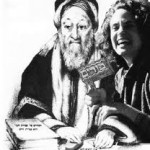
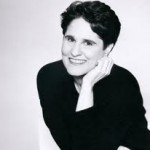
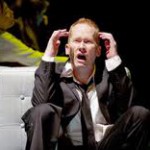
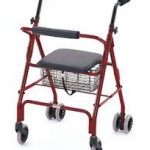
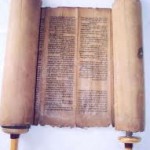
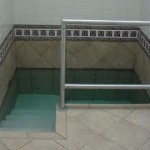
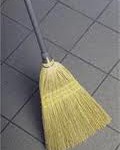
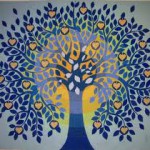
Love this! My favorite part: “We must store up resources of faith, even as the Egyptians stored grain, to nourish us spiritually when events turn against us.”
Amen.
What a beautiful essay, Barb. I especially liked the meditation at the beginning of the High Holy Day prayer book that you quoted. Since the days are numbered for each of us, trying for that mindfulness of what is good and what is eternal is a worthy goal. (My maternal grandmother used to say, “God has punched all of our tickets. We just don’t know which one is our stop.”) You are doing such a remarkable job of using every moment in service toward your goals and your deeper awareness of what is important.
xox Mary
and I might add, bringing admiring readers and followers such as myself, along with you! Thank you.
Mary
Barbara,
Yom Kippur is never an easy holy day. The day of At One Ment; facing God, one’s mortality, one’s relationships with self and others is never a comfortable experience. Cheshbon ha’Nefesh, accounting of the soul causes one to reevaluate so much and of course letting go, is never easy. However, the long blast of the Shofar announcing the end of the fast gives one a sense of cleanliness and rebirth.
If you would give me your Hebrew name as well as your mother’s, I will put you on the Mishebayrach list in my Synagogue. I also have access to a Tehillim list in Israel over which my sister watches.
Refuat Ha’Nefesh v’refuat ha’Guf is my wish for you and for all in need of healing.
I always seem to learn things from people with ALS. I have learned much that is important from B. Thank you.
Let me join in saying Amen.
Indeed….. Amen.
Barbara- broom or Torah? You are so funny! Your choice of imagery and the moral lessons they underscore have created a whole new place in my heart and mind.
I laugh, I cry. I’m moved to think. I’m so thankful to you for awakening me to so many positive paths to healing, while acknowledging the reality of death.
I’m sweeping your hall, and wishing you a most happy, and sweet New Year!
Hi Barbara,
If I could, I would come and sweep your floor — but I can’t even sweep my own!
But I think of you EVERY day –.
I am old. Let’s see who can live the longer!~I think it will be you–
I have a matching walker. I wish we could walk together.
I need a friend who can walk at my slower pace..
Luv you — XXXXNora
I have said and will continue to say the Misheberach for you. You are holding this experience of ALS firmly yet with an open hand, which allows us friends and readers to enter in as we are able. I have been studying Aikido, a martial art, and one of its precepts is that it is not a technique to fight with or defeat the opponent. Instead of pushing or running away when attacked, we would move toward the attacker allowing their own energy to throw them off center. If ALS or death is the opponent in this case, your movement has been one of great determination, but not of resistance, you have moved toward the attacker. You are getting to know both ALS and death with respect for their power, yet not letting them take your center from you. There are ways in which you seem to be trying to see things from their perspective as well, to learn and receive all of the jewels they have to offer, even though you already know the end of the story. Thank you for sharing your courage and heart, Barbara. Much love, Kathi
Barbara, I sing the Debbie F. Mishaberach as a lulabye to Daisy at night I love it so. Also her v’ahavta and her Eliyahu Ha’Navi. I was just thinking last night what an amazing legacy she has and how she transformed the music of Judaism for me so meaningfully as a young person.
Maybe this is beyond the scope of all of this but I am so curious about your invocation of God. I wonder how you understand God, not because of ALS, per se, because I assume this didn’t change your perspective on the divine, but I am always so interested in how people interpret and hold the idea of God…..
XX, P
Thank you for sharing your spiritual process, Barbara. I am touched by your spirituality and the way you are consciously nurturing it to transform your experience into a spiritual journey and adventure. I have never been very ill but I have faced overwhelming loss and grief. In my experience, the most difficult times were the times in which I felt the strongest spiritual connection. It is clear that this has been and continues to be your experience. Your willingness to share this process and experience enriches us all. Thank you so much. Sending much, much love to you and Susie,
Nina
AMEN!!!
ILLUMINATING!!! (as usual!)
Thank you, (once again) Barb
love, susan
This is the line I’m going to be thinking about a lot over the next few days, because it expresses what feels, in some ways, like my biggest spiritual challenge over the last few years: “I have learned to return, either physically or in my mind, to the places in nature that feed my soul without being nostalgic for how I used to be in those places.” Amen, and bless you, BB.
W.
Amen, Barbara.
And let us say amen….
Blessings to you, Barbara, and thank you for this beautiful essay. L’Shana Tovah. Amen
Dear Barbara-
Thinking of you these past few days, as I have been in SF and meeting some of the many people who love you. When I get home I will dig up my music for Mi’ She’Berach and play it on my cello, imagining that you are playing it with me on your piano….
much love, judy
It is certainly easy to see that illness has not compromised your ability to be eloquent in word. God continues to Bless you Barbara and those that love and adore you will continue to pray to God in your behalf.
Happy New Year and congratulations on your birthday. Your words bring tears of wonder and you express beauty and hope and knowledge with them. Thank you so much for sharing your thoughts and I am so happy you have found peace working with your rabbi.
Love to you and Susie.
Susan
You have touched my heart again, deeply, Barbara- thank you- and “amen”.
Thanks for sharing this thoughtful and beautiful reflection. And, damn, you write well. db
Your words, as always are eloquent. What’s more, they always resonate with me. You always capture what I’m thinking about but can’t seem to solidify.
Alan and I just bought a home in Napa and plan to spend time out there in the coming years — when we can get away from our jobs in St. Louis. We hope to see you — or to sweep your hallways. Either would be a blessing for us.
|~with love, Nancy
Of all the communications I’ve had since I heard about the death of a friend of 41 years on Sunday, this is the only one that helped me go to that painful place of letting go and sobbing over the loss of a unique and good person who fought the good fight against lung cancer. We all need so much more support than we think we do and when it is not available (those of us with no religious affiliation are particularly bereft), we tend to just get on with it with a sad “c’est la vie.”
Your quote from Debbie Freidman reminded me of this wonderful song by her which is used frequently in our Prebyterian church. Barabara, you are certainly a blessing to so many. love, Ellen
L`chi Lach , by Debbie Friedman
L’chi lach, to a land that I will show you
Leich l’cha, to a place you do not know
L’chi lach, on your journey I will bless you
and you shall be a blessing, you shall be a blessing, you shall be a blessing ,l’chi lach.
L’chi lach, and I shall make your name great
Leich l’cha, and all shall praise your name
L’chi lach, to the place that I will show you
L’sim-chat cha-yim (3x), and you shall be a blessing, l’chi lach
I thought of you and prayed for you at Yom Kippur services this year with Congregation Beth Am. Very sorry to have missed your Labor Day weekend event.
Although we have not seen much of each other over recent years, your words and actions live inside of me–most notably you are the first person to have pointed out that:
There is power in authenticity.
(Someone at work at the time you said this,had suggested that I lose my NYC accent–and you advised against it with that quote).
I am glad that you provided us all with an opportunity to provide the mitzvah of the virtual visit! Love, Lauren (and George)
Your writings help me to store up resources of faith. As always you shine the light on important issues with beautiful clarity. Many blessings to you.
Barbara, we don’t know one another but I was directed to your page on the recommendation of a friend who knows of my family’s experience with ALS.
I live in Toronto, Canada and I belong to a very inclusive, participatory and diverse congregation here (Shir Libeynu) that has been extraordinarily supportive to me and my family while we all struggled through his illness together. I always find a special kinship with others (particularly other Jews) who ask difficult questions, challenge dogma, and participate in social justice activities, but there is a new kind of kinship that I have found among people who have direct or indirect experience with ALS.
One of the greatest lessons I learned from my Dad as he progressed in his illness was his ability to enjoy the various pleasures that Life had to offer him, despite his ever-changing physical circumstances. A good meal, an engaging conversation, an illuminating audio book, a glass of wine (with a bendy straw), and great company, including his four small dogs – his “furry compatriots” as he called them. I learned to stop putting things off that I want to do until “later” since later is not guaranteed to any of us. I took a long awaited trip to Israel and Jordan this past April and May, and spent the last days of Pesach at the Western Wall in my tallit and kippah, reciting the mi’she’berach, the Shema, the ve’ahavta and the mourner’s kaddish. I have a greater appreciation for Life and all its myriad pleasures, quirks and foibles.
Mazal tov to you for all you are learning, bearing, doing and teaching. A belated shana tova and gmar chatima tova to you and your family.
Amy
beautiful in spirit, beautiful in words, Barbara.
I love what you have written, love what’s in your heart, love that you are my sister’s friend, and wish I had your energy.